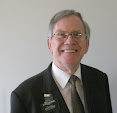Navigating the FamilySearch Beta https://beta.familysearch.org/ There seem to be a lot of people who are unhappy with this. I thought I would share a tip about checking the hits in FamilySearch Beta. To avoid losing your place, RIGHT click the interesting hits to open them in a new tab. It just takes seconds to examine the contents of each tab and close it (if it is not what you are looking for). Clicking the first tab will take you back to the same point you were at on the first page. I found this a real time saver! Before discovering this, I found the navigation a nightmare. More Great Genealogy Brickwall Solutions - Part II Another excellent article from GenealogyInTime.com http://www.genealogyintime.com/GenealogyResources/Articles/more_great_genealogy_brickwall_solutions_part2_page1.html?awt_l=KMu5_&awt_m=1a62s3My9gk.Vy or in short form: http://tinyurl.com/2b5cek5 [Disclosure: I have no connection with this website, but I find it excellent.] A handout I prepared for members of my class last Thursday. Tips for Online Searches Don’t assume that the information you already have is 100% accurate, and don’t assume that the online information is 100% accurate. Try to verify it. Putting too much information in the search screen may prevent a successful search. Don’t be too precise in your searches. Allow some flexibility. (Yes, the 1901 Canada census clearly indicates an exact birth date. Maybe it’s even true, but in your searches allow a few years of leeway before and after.) Don’t assume that someone was born in the country where you found their marriage or death. Look for confirming records. If you do an online search based on this "birthplace" you will not find them, even if the record would be easily found otherwise. First and middle names are often switched. Sometimes given names will be replaced by abbreviations or initials. "William Edward David Coulter" was commonly known as "W E D Coulter", but occasionally he shows up as "Wm. Colter". Surnames may be spelled in unfamiliar ways that sound somewhat similar. Nicknames will often be used. (I was in my 50s before I realized that "Great Aunt Minnie Steele" was actually "Mary Elizabeth Steele".) Consider the source of the information. Records made at the time of an event are usually more trustworthy than later records. Official records are usually more accurate than recollections of family members ... but not always. Sometimes information given on an official record is wrong. Sometimes this is an inadvertent error. (One of which has plagued my Buchanan line for over 130 years!) Sometimes it is deliberate, as in the case of ages stated at the time of marriage. (If the bride and groom were both 21 years old, parental permission for the marriage was not needed. But brides liked to be shown as younger than their husbands, so sometimes they would shave a few years off their age. In areas where first cousins could not be legally married, sometimes genealogy was falsified to allow the marriage to take place.) "Estimates" are just "guesses" wearing their Sunday best. They are useful so long as you remember that they are only reasonable guesses. They should be replaced as soon as you have official data. Senior and Junior do not always mean father and son. As you go back in time, these terms are sometimes used to mean the older and younger of two people with the same name living in the area. They may indicate a bride and her mother-in-law! Be reasonably vague in your search terms. (Including death information may limit the search results to records containing death info, excluding birth, marriage and other important facts.) Have patience. Gather information, and then see whether it fits or not. Maybe paste it in your PAF notes for handy access. Many databases allow wildcard searches, where * represents all letters after that point, so Peters* would find Peterson, Petersen, Petersborough. The ? wildcard represents a single letter, so Pe?ers?n would match Peterson, Pederson, Petersen, etc. Enjoy your research!
Bill's Genealogy Blog
Bill Buchanan is a long-time genealogy enthusiast, living in Spruce Grove, Alberta, Canada. This blog will describe my experiences as I research my family history and help others.
About Me

- Name: Bill Buchanan
- Location: Spruce Grove, Alberta, Canada
I am a retired online school teacher. I love family history. From 2007-2020, I spent much of my time providing part-time support for the world's largest free family history site https://familysearch.org This is very rewarding. I have helped others with the Family Tree and related FamilySearch products.
In 2010-2018 I served in the Edmonton_Alberta_Riverbend_Family_History_Centre..I have a FHC blog at Bill's Family History Center Blog Since 2020 I have been a family history consultant for Edmonton Alberta North Stake.
For information on the Latter-day Saints and family history click https://www.comeuntochrist.org/


0 Comments:
Post a Comment
<< Home